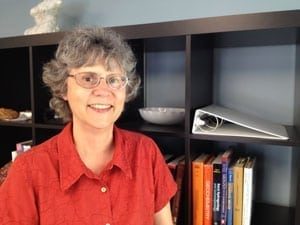Professor’s election expected to shine light on Clemson University’s environmental education
July 30, 2014Cindy Lee to begin three-year term in September
CLEMSON, SC – A professor who has researched PCB contamination in Lake Hartwell’s tributaries will soon begin a leadership role that is expected to shine a light on Clemson University’s environmental engineering and Earth sciences program.
Cindy Lee has won election to the board of directors for the Association of Environmental Engineering and Science Professors (AEESP). She begins her three-year term in September.
“It puts us in the public eye of all the other universities,” Lee said. “The association is a great organization that does a lot for faculty and students.”
AEESP, a private nonprofit founded in 1963, has more than 800 members in universities worldwide. Lee’s position as a board member is expected to help enhance Clemson’s reputation in the field, helping recruit top faculty and students.
Anand Gramopadhye, dean of the College of Engineering and Science, said Lee’s election is a richly deserved honor and speaks highly of Clemson’s environmental engineering and Earth sciences program.
“They have been leaders in the profession and the Clemson community,” he said. “It is wonderful that Dr. Lee has taken on this role. I congratulate her for all she does for Clemson and the larger professional community.”
Lee has had students in the lab this summer, examining how PCBs in sediment spread through the ecosystem. Even after plants, insects and animals die, PCBs remain in the environment, she said.
Students have been taking samples from Town Creek, where about 200 tons of PCBs were discharged from 1955 to 1978, Lee said. Town Creek flows to Twelve Mile Creek, which empties into Lake Hartwell.
While the contamination has been diluted, Lee said she remains concerned about pregnant women and small children who would eat fish from Town Creek, Twelve Mile Creek and Lake Hartwell. PCBs have shown strong evidence of causing hearing problems and diminished I.Q. in children.
Lee also collaborated on PCB research that was published in 2013 by the journal Environmental Toxicology and Chemistry. Researchers studied Town Creek and found evidence “to conclude that there is an ongoing source of PCBs to the system.”
Lee collaborated with Viet D. Dang, formerly of Clemson, and David M. Walters of the U.S. Geological Survey. Their paper was called, “Assessing Ongoing Sources of Dissolved-Phase Polychlorinated Biphenyls in a Contaminated Stream.”
AEESP helps members improve education and research programs, encourages graduate education and provides information to government agencies and the public.
The association also gives out annual awards.
Among them is the Perry L. McCarty/AEESP Founders’ Award, which recognizes environmental engineering and science professors who have made “sustained and outstanding contributions to environmental engineering education, research, and practice.”
Clemson is the only university that has had three professors win the award. They are Linvil G. Rich, Thomas M. Keinath and C.P. Leslie Grady Jr.



















